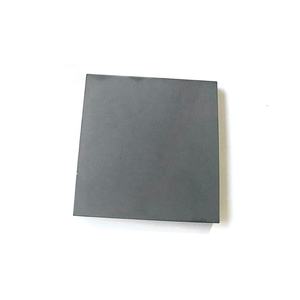Discover Premium Ceramic Products | Durability & Elegance United | Advanced Ceramics
PRODUCT PARAMETERS
Description
Introduction of Boron Carbide Ceramics
Boron carbide ceramics is an inorganic, non-metallic material with carbon and boron as its main components, and its chemical formula is B4C. Since its discovery in the early 20th century, this material has attracted a great deal of attention because of its unique physical and chemical properties. Boron carbide ceramics have an extremely high hardness, second only to diamond and cubic boron nitride, which makes it important in the field of wear-resistant materials. It also exhibits excellent corrosion resistance, high-temperature stability and low-density properties, attributes that make it ideal for the manufacture of bullet-proof vests, nozzles, bearings and other mechanical components that require high wear resistance. Boron carbide ceramics can also be prepared in a variety of shapes and sizes through different processes to meet the needs of different industries.
Characteristics of Boron Carbide Ceramics
Boron carbide ceramics are known for their excellent performance characteristics, starting with their ultra-high hardness and strength, which makes them resistant to severe abrasion and scratching, making them ideal for use in cutting tools and abrasives. Secondly, the material possesses excellent chemical stability and is less likely to react with chemicals such as acids and alkalis, even in extreme environments, making it widely used in certain key components in the chemical industry. In addition, the superior thermal stability of boron carbide ceramics and their ability to maintain structural and property stability at extremely high temperatures makes them one of the key materials in the aerospace and nuclear industries. Finally, it is worth mentioning its lightweight properties, which, due to its low density, make boron carbide ceramics an ideal option for application scenarios that require light weight but high strength. Together, these characteristics give boron carbide ceramics a wide range of applications.

(Pressure Sintered Pressless Sintered B4C Boron Carbide Silicon Carbide Ceramic Sheet / Substrate / Thin Plate)
Specification of Pressure Sintered Pressless Sintered B4C Boron Carbide Silicon Carbide Ceramic Sheet / Substrate / Thin Plate
Pressure-sintered pressless sintered B4C boron carbide and silicon carbide ceramic sheets, substrates, and slim plates are innovative products designed for high-performance applications. These items are made using a specialized sintering process that removes the requirement for outside pushing. The technique makes sure consistent density and architectural honesty while lowering internal flaws. The result is a ceramic product with remarkable solidity, thermal stability, and resistance to put on and rust.
The sheets and plates are available in thicknesses ranging from 0.5 mm to 20mm. Customized sizes can be created based on requirements. Requirement measurements include 100mm x 100mm, 200mm x 200mm, and 300mm x 300mm. Bigger layouts are possible for industrial usage. The product purity goes beyond 99%, with key parts being boron carbide (B4C) or silicon carbide (SiC). Additives like carbon or sintering aids might be consisted of to boost particular residential or commercial properties.
Trick specs consist of a density of 2.5-2.7 g/cm three for B4C and 3.1-3.2 g/cm ³ for SiC. Both products display Vickers solidity degrees over 30 Grade point average, making them ideal for rough atmospheres. Thermal conductivity varieties in between 30-42 W/m · K for B4C and 120-140 W/m · K for SiC. Maximum running temperatures get to 2200 ° C in inert atmospheres and 1400 ° C in oxidizing problems. Electrical resistivity is high, exceeding 10 ^ 12 Ω · centimeters, which sustains usage in electronic insulation.
These ceramic items are ideal for demanding industries. Applications consist of shield systems, reducing tools, wear-resistant cellular linings, and semiconductor handling components. They do well in high-stress atmospheres like aerospace, nuclear reactors, and chemical processing plants. The products withstand acids, alkalis, and molten steels, ensuring durability in harsh settings.
Surface area finishes can be customized from as-sintered to brightened or covered. Resistances are tightly controlled, with monotony within ± 0.05 mm per 100mm. Custom-made machining solutions are readily available for exploration, grinding, or forming to precise geometries. Product packaging options safeguard against damages throughout delivery.
The mix of mechanical strength, thermal homes, and chemical resistance makes these ceramics trustworthy for crucial applications. They offer a cost-effective solution compared to standard metals in severe problems.
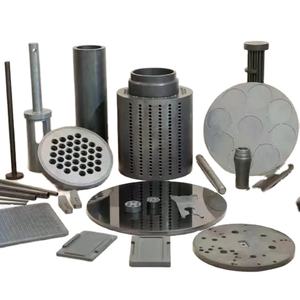
(Pressure Sintered Pressless Sintered B4C Boron Carbide Silicon Carbide Ceramic Sheet / Substrate / Thin Plate)
Applications of Pressure Sintered Pressless Sintered B4C Boron Carbide Silicon Carbide Ceramic Sheet / Substrate / Thin Plate
Pressure sintered pressless sintered B4C boron carbide silicon carbide ceramic sheets, substratums, and slim plates are sophisticated materials made for high-performance applications. These products incorporate boron carbide (B4C) and silicon carbide (SiC), supplying outstanding firmness, thermal stability, and resistance to wear, rust, and severe atmospheres. They are extensively made use of throughout sectors where sturdiness and accuracy matter.
In the protection industry, these ceramic sheets serve as lightweight shield elements. Their high solidity stops bullets and shrapnel efficiently. Military automobiles, body armor, and airplane shield systems use them for protection without adding too much weight. The material’s ability to absorb impact energy makes it a reliable choice for life-saving applications.
Industrial machinery gain from these ceramic substratums. They are used in reducing tools, nozzles, and wear-resistant parts. Factories taking care of abrasive products rely upon them to reduce downtime. The ceramics stand up to high rubbing and temperatures, keeping efficiency in grinding, boring, and machining processes. Their long life reduces replacement costs and boosts performance.
Electronic devices and semiconductor industries make use of slim plates for warm dissipation. The ceramic’s thermal conductivity handles warm in high-power gadgets like LED modules, circuit card, and laser diodes. It protects against overheating, making certain steady operation. The electrical insulation residential properties additionally make it safe for use in delicate digital elements.
Chemical processing plants utilize these sheets in destructive settings. They stand up to acids, alkalis, and extreme chemicals. Shutoffs, pumps, and reactor cellular linings made from this material last longer than metal options. This decreases upkeep needs and stops contamination in chemical manufacturing.
Nuclear energy applications depend on boron carbide’s neutron absorption. The ceramic sheets work as securing in reactors and radiation control systems. They boost safety and security by obstructing unsafe particles while maintaining architectural stability under high radiation levels.
These ceramic products are likewise used in aerospace for parts revealed to severe warm and tension. Wind turbine blades, heat shields, and sensing unit real estates benefit from their light-weight yet durable nature. The product’s stability guarantees integrity in essential flight systems.
Custom dimensions and densities are readily available to satisfy details demands. Suppliers focus on precision to ensure compatibility with sophisticated modern technologies. The mix of boron carbide and silicon carbide creates a flexible remedy for sectors requiring high-performance materials.
Company Introduction
Advanced Ceramics founded on October 17, 2014, is a high-tech enterprise committed to the research and development, production, processing, sales and technical services of ceramic relative materials and products.. Since its establishment in 2014, the company has been committed to providing customers with the best products and services, and has become a leader in the industry through continuous technological innovation and strict quality management.
Our products includes but not limited to Silicon carbide ceramic products, Boron Carbide Ceramic Products, Boron Nitride Ceramic Products, Silicon Carbide Ceramic Products, Silicon Nitride Ceramic Products, Zirconium Dioxide Ceramic Products, Quartz Products, etc. Please feel free to contact us.(nanotrun@yahoo.com)

Payment Methods
T/T, Western Union, Paypal, Credit Card etc.
Shipment Methods
By air, by sea, by express, as customers request.

5 FAQs of Pressure Sintered Pressless Sintered B4C Boron Carbide Silicon Carbide Ceramic Sheet / Substrate / Thin Plate
Pressure Sintered Pressless Sintered B4C Boron Carbide Silicon Carbide Ceramic Sheets/Substrates/Thin Plates are advanced materials used in high-performance industries. Below are five common questions about these products.
What makes these ceramic sheets different from regular ceramics? These sheets combine boron carbide (B4C) and silicon carbide (SiC). The pressure-sintered process creates a denser structure. This improves hardness and wear resistance. Regular ceramics lack this density. They degrade faster under stress or heat.
What industries use these sheets? They are common in aerospace, defense, and nuclear sectors. Their extreme hardness resists abrasion. They shield against radiation. They handle high temperatures in industrial machinery. Electronics use them as heat-dissipating substrates.
Can these sheets survive corrosive environments? Yes. Boron carbide and silicon carbide resist acids and alkalis. They do not rust or degrade in harsh chemicals. This makes them ideal for chemical processing equipment. They last longer than metals or polymers.
How do pressure-sintered and pressless-sintered methods differ? Pressure sintering uses heat and external pressure to compact materials. This reduces pores. The result is higher density. Pressless sintering relies on heat alone. It is cheaper but less dense. Pressure-sintered sheets perform better in extreme conditions.
Can these sheets be customized for specific needs? Yes. Thickness, size, and surface finish can be adjusted. Holes or grooves are added for mechanical parts. Custom shapes fit specialized equipment. Manufacturers test each batch for quality. This ensures consistency in performance.
These sheets solve challenges in demanding applications. Their durability and adaptability make them critical for modern engineering. Users rely on them for long-term reliability under stress.
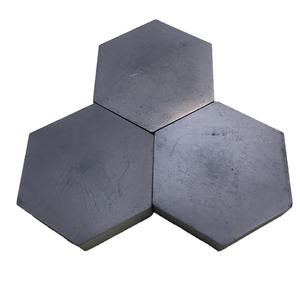
(Pressure Sintered Pressless Sintered B4C Boron Carbide Silicon Carbide Ceramic Sheet / Substrate / Thin Plate)
REQUEST A QUOTE
RELATED PRODUCTS
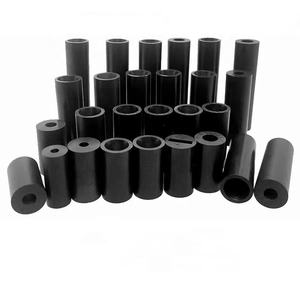
Silicon Carbide Ceramic Boron Carbide Ceramic Plate B4C Ceramic Tiles Single-curved Surface
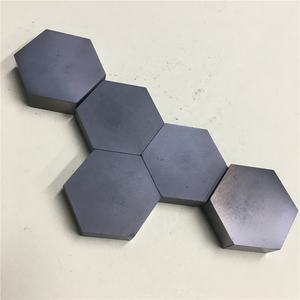
China Factory Supply B4C Ceramic Sheet Boron Carbide Monolithic Plate Protection Customizable Welding Cutting Punching Square
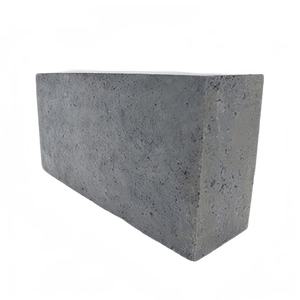
B4C Boron carbide ceramic plate sheet tile
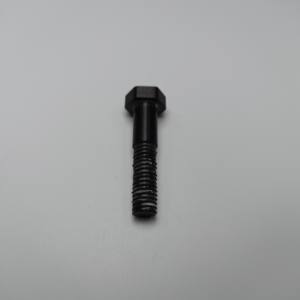
Top Quality Boron Carbide B4C Sputtering Target /Plate / Rod /Tube 3N Boron Carbide Ceramic Target
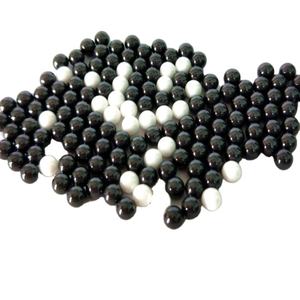
High Hardness B4C Boron Carbide Ceramic Tube Igh Frequency Insulating Ceramics Boron Carbide Ceramic Nozzle
